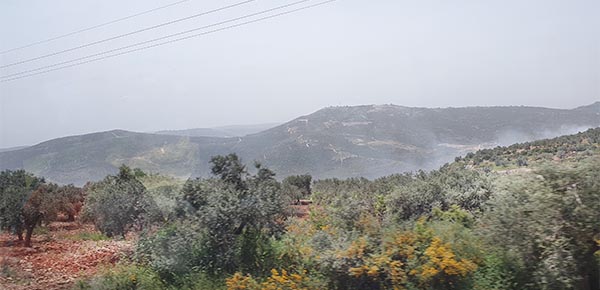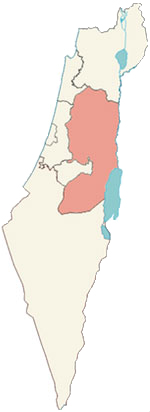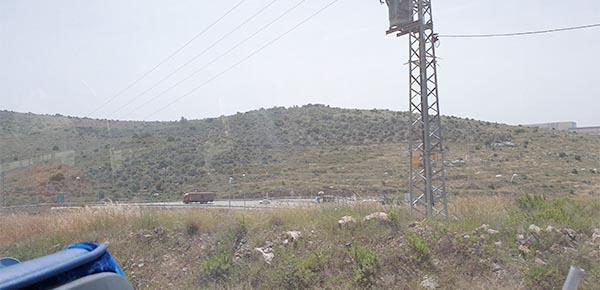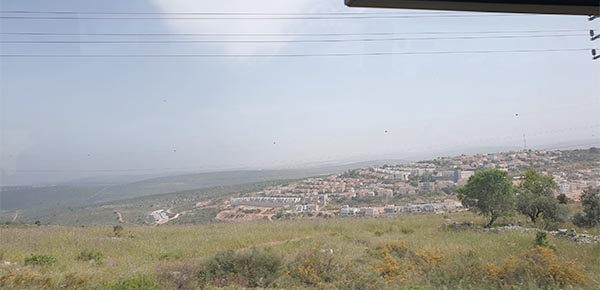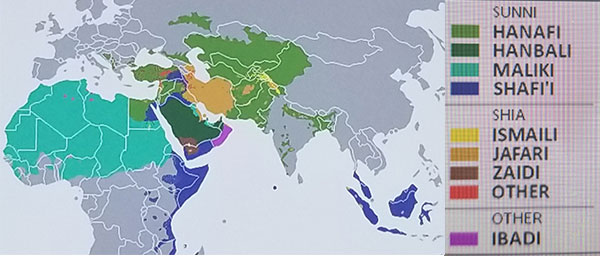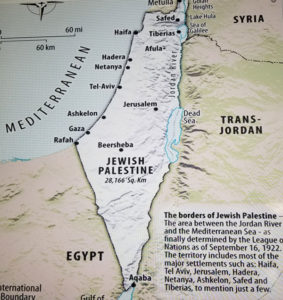The destruction of Jerusalem and the second temple by the Romans in 70 CE and the banishment of the Jewish people to the far corners of the Roman Empire ended the Jewish nation and the sovereignty of the Jewish people of Judah for almost 2,000 years. During the following centuries, until the 19th century, whenever a Jewish population attempted to settle and gather in the suburbs of Jerusalem, they were warned off by the reigning empire—frequently by force. After the decree of Rome banishing the Jewish people from the city of Jerusalem and the region, the Roman government renamed the land “Palestine.”
Thereafter, the Jewish people suffered prejudice and persecution as a people. There ceased to be a Jewish nation – neither Israel nor Judah. As the Lord warned through the biblical prophets, the people of Israel were scattered around the earth. However, the Jewish people stayed together as a people wherever they lived throughout the world, observing the Sabbath and celebrating the Jewish (biblical) holidays. During the Passover Seder (meal), they recited the story of deliverance from slavery in Egypt, and at the end, they proclaimed: “Next year in Jerusalem!”
The land of Israel and the city of Jerusalem were never forgotten. In the latter19th century, events began to transpire that would eventually give birth, after almost two millennia, to the modern Jewish state of Israel.
The “Aliyah Movement”

The literal meaning of the Hebrew word, “Aliyah” is “to go up.” In other words, no matter where a Jewish immigrant is coming from to Jerusalem or the Land of Israel, he is going up. It is also the term for calling a member of a Jewish synagogue to “come up” to read the weekly portion from the Holy Torah scroll.
The Aliyah movement was a response to the historic and repeated persecution of European Jews. It swept young Jewish adults of Eastern Europe in an almost spontaneous burst of passion for the Land.
The First Aliyah in 1881 to 1882 – a reaction to pogroms (an organized massacre) in Czarist Russia would eventually include almost 35,000 Jewish pioneers, a generation of Jewish young adults determined to leave their countries of origin and “go up” to the land of their forefathers, now called Palestine. Their passion was to rebuild their families and the land. These pioneers frequently overcame monumental obstacles to reach the historic lands of Judah and Israel, at that time known as “Palestine,” in an attempt to build a new life for themselves and the Jewish people.
The First Zionist Congress – The second significant event in the latter 19th century was the emergence of Zionism under the initial inspiration and leadership of Theodor Herzl, a successful secular Jewish journalist from Vienna, who was shocked by the deadly anti-Semitism, prejudice, and persecution of the European Jews at the hand of the gentiles, and was convinced that they were a continual threat. The solution, according to Herzl, was a Jewish homeland in Zion, the ancient land of the Jewish people. To this end, he organized the First Zionist Congress, held in Basel, Switzerland, in 1897 with about 200 Jewish delegates in attendance from different nations.
During the 19th century, as the First Aliyah began to unfold, and the First Zionist Conference was held, Christian leaders were of mixed opinions as to the significance of these matters. Some read the prophecies in the scriptures and were certain the nation of Israel had to be reborn. Others, believing in the replacement theology, were just as certain Israel and the Jews were rejected by God and replaced by the “Church.” Depending on the denomination, churches were for or against, (moral) support to the Zionist cause.
This debate continued right up until the UN voted in 1948 to make a way for a Jewish homeland, and continues to rage to the present day. Is it Prophetic or Political? Whether it is a Russian diplomat acting on behalf of the Czar; or a U.S. President, or the U.S. State, religious and/or political beliefs lie beneath the surface of action or inaction. Even today, beliefs, as well as self-interest and necessities, right or wrong, specifically affect individuals’ and nations’ positions on the events taking place in the Middle East.
Following the death of Herzl in July 1904, the banner for a Jewish state was carried by a new generation of secular, humanist, European Jews. Chaim Weizmann and David Ben-Gurion were the most notable. The motivating force behind the struggle for the creation of a Jewish homeland was driven by these men who were liberal, even socialist in their beliefs and politics.
Religious Judaism was not significantly represented among the early leaders of what became the first Israeli politicians. They were not motivated at all by a historical/biblical longing for the return to the land of their fathers. Their motivation was nationalistic; to the extent that they were convinced, there could never be peace for Jews in any non-Jewish country.
Internationally, and under all circumstances, whenever events turned negative—be they political, economic, or even climate change—the Jews were always the convenient scapegoats for blame. Even in the USA, it was widely held among the general population that “the Jews were behind the banking crisis and the Great Depression.”
The early Zionist founders were Jews but had no real connection to the Jewish religion or traditions. Some barely believed in God, or not at all. In fact, religious Judaism was skeptical of any effort to create a new Jewish state. Many Orthodox rabbis spoke openly against it, even maintaining it was up to the Messiah, when He comes, to reestablish the nation. Many went so far as to say working for a (secular) Jewish state was blasphemous.
The Balfour Declaration – Britain’s Lord Balfour’s declaration was a public statement issued on November 2, 1917, by the British government and published on November 9, 1917. It declared support for the establishment of a “national home for the Jewish people” in Palestine, (which was at that time a Muslim Ottoman Empire region with a small minority Jewish population.)
It seemed to satisfy the vision Herzl had for a Jewish home in their homeland. However, its implementation met with opposition within the British government because England was dependent upon the expanding crude oil development of the Middle East, which necessitated good relations and support of the Arab populations and states that apparently controlled the crude reserves.
At the conclusion of WWI, the victorious Allies, at the encouragement of Great Britain, made several modifications to the map of the Middle East that was previously the undivided Turkish Ottoman Empire. They divided up much of that territory to create a new map. Included in this innovative map-making was the creation of several new countries that had never existed before, such as Iraq, Kuwait, Jordan, Lebanon, Syria, Saudi Arabia, Oman, and others. The “Great Nations” behind this new map of the Middle East were Great Britain, France, and, to some extent, Russia.
A New Map
With all of this “new country creation,” the Zionists had realistic expectations, in light of the Balfour Declaration, that Great Britain would only allow for a sliver of land in Palestine for the first Jewish homeland in two millennia.
Unfortunately, even this did not happen at that time, as the national security voices within the British Foreign Office prevailed with the argument that the vast Arab majority of the Middle East, where the largest concentration of future crude oil was certain to be located, would not permit the creation of a Jewish state in Palestine, no matter how small.
The League of Nations (later to become the United Nations) gave Great Britain the mandate over the Palestine area, which included the area that is now Jordan. The British were supposed to be there until the Jews would be able to rule their new state. They were also supposed to keep the peace in this troubled spot. This enabled the British to maintain British dominance in this strategic region.
But, due to England’s growing prejudice and hostility toward world Jewry and their religion, as the 20th Century progressed, it became clear to the Zionists that a Jewish homeland in Palestine might never be achieved. With hostility increasing all over Europe toward the Jews and British policy limiting the immigration of Jews to Palestine, Jews began to resort to “illegal” means to enter and settle in Palestine.
Nowhere to go
Even as Hitler’s final solution to exterminate the Jewish population of Europe progressed, Great Britain continued to forbid entry of additional European Jews refugees to Palestine. Once Hitler was finally defeated, Europe found itself with millions of DPs, (Displaced Persons,) of which the majorities were Jewish survivors of the Hitler extermination machine. These Jewish Holocaust survivors soon discovered they were not even welcome to return to their former European homes or cities. When a few brave ones attempted, they were greeted not as survivors of Hitler, but as “the cause of the war.”
A significant number of those who survived Hitler were killed by angry anti-Semite mobs when they attempted to return to their homes which had been confiscated (among them were Bella’s father’s family.) In Poland, returning survivors were attacked with shouts of, “Hitler should have finished the job! Why aren’t you dead?” The Allies decided it was too risky to allow these Jewish survivors to “just run loose.” So, the Allied Occupation Command decided to convert many of Hitler’s “death” camps to “DP camps,” camps for displaced persons (Bella was born in a DP camp in 1947). Once again, the Jews were locked up!
Although pressure was mounting on Britain to let some of these Holocaust survivors enter Palestine, the British government feared it would provoke an Arab violent reaction, as it saw itself as the only peacekeeping force in Palestine between the Arab population and the growing Jewish one.
By the fall of 1947, the pressure upon the British had grown almost intolerable, with U.S. President Harry Truman leading the way, finally, Great Britain agreed to an option of ending the mandate (trusteeship) submitted to a vote by the newly created United Nations general assembly. Britain lobbied on behalf of a proposal, calling for the simultaneous creation of an Arab state and a Jewish state, dividing the previously undivided Palestine.
However, with the growing aspirations of the Soviet Union in the Middle East and the desire to reduce the influence of Great Britain in the region, the Soviet Union, with all of their vassal states, voted for the end of the mandate and the creation of an independent Jewish state.
The U.N. vote on November 29, 1947, ended the British mandate in the region, as well as the blockade of the European-Jews, immigrated to Palestine.
Declaration of the State of Israel
Immediately upon the withdrawal of the last British troops from Palestine, Ben-Gurion, the leader of the Jewish population in the land declared the independence and statehood of the Jewish nation, calling the new Jewish state and the land – “Israel.” In fulfillment of the prophecy in Isaiah 66:8, on May 14, 1948, a nation, the Nation of Israel was truly born in a day.
Once the U.N. voted to end the mandate, and cleared the way for a Jewish state, it began to establish the permissible, likely borders. Also, it was envisioned that an additional Arab/Palestinian state would simultaneously be created in the former British Mandate Palestine.
The neighboring and existing (Islamic) Arab nations in the region opposed the idea of a Jewish state ever emerging in the Middle East, no matter how small. At the core of the Arab opposition was a fundamental Islamic inviolable precept that “Once a land or territory has been conquered by Islam, from that time that land is Islamic! All true followers of Islam are committed to going to war, and even dying, to enforce this Islamic dictum!” (Israel was conquered by Islam in the 7th century and reconquered in the 11th century)
The Miracle
This is the mantra of organizations like Hamas and Hezbollah as well as nations like Iran. To the secular nations, including the emerging secular leadership of the (then) proposed Jewish state, it seemed impossible to reason with such religious dogma. It appeared war would be the only solution. Jihad (Islam Holy War) was the only honorable response prescribed by Islam.
The outnumbered, outgunned Jews of the new state were seen as having no chance to survive such an attack from the surrounding enormous enemy armies. It was widely believed the Jewish state that was born in one day would not survive even one day. Miraculously, Israel defeated these enemies and God’s word of a reborn Jewish state prevailed.
